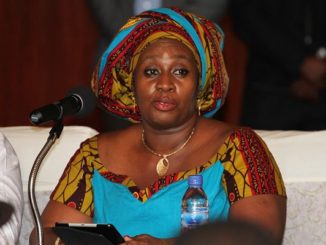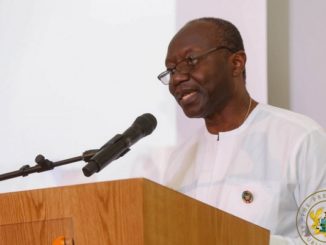
Ex-President John Dramani Mahama has for a third successive time being ranked higher than President Nana Addo Dankwa Akufo-Addo in terms of perceived corruption in governance as reported by Transparency International, MyNewsGh.com has filed.
In the latest account as released by the local chapter of the organisation, Ghana Integrity Initiative (GII), the country scored 41 points out of 100 on the Corruption Perceptions Index (CPI).
It comes as a third all-time low record the country has since recorded in the fourth republic.
Corruption Index in Ghana averaged 38.95 Points from 1998 until 2019, reaching an all-time high of 48 Points in 2014 and a record low of 33 Points in 1999.
Ghana dropped in the scores from 47 in 2015 under ex-President Mahama to 43 in 2016, a year after President Akufo-Addo assumed office as the country’s president.
The CPI score again dropped to a second all-time record low of 40 in 2017 and improved to 41 in 2018 and 2019 under the same government.
The statistics as released by Transparency International places ex-President Mahama’s government ahead of the Akufo-Addo’s, three years on after the latter assumed office.
This 41 score is the second lowest in Ghana’s CPI score since 2012 when CPI scores became comparable and third lowest score since the fourth republic came about.
In 2013, the country scored 46 points, 48 points in 2014, 47 points in 2015, 43 points in 2016, 40 points in 2017, 41 points in 2018 and since maintained 41 out of a possible 100 in 2019.
The Corruption Perceptions Index ranks 180 countries and territories based on how corrupt their public sector is perceived to be and draws on 13 surveys and expert assessments. A country or territory’s score indicates the perceived level of public sector corruption on a scale of 0 (highly corrupt) to 100 (very clean).
CPI 2019 focuses on political integrity and highlights the relationship between politics, money and corruption.
By political integrity, Transparency International means the quality of (a) contesting and exercising power (political/public office), consistently acting in the public interest, and (b) providing equal, open and meaningful access to the affected stakeholders before arriving at decisions.

–
Credit: Mynewsgh



